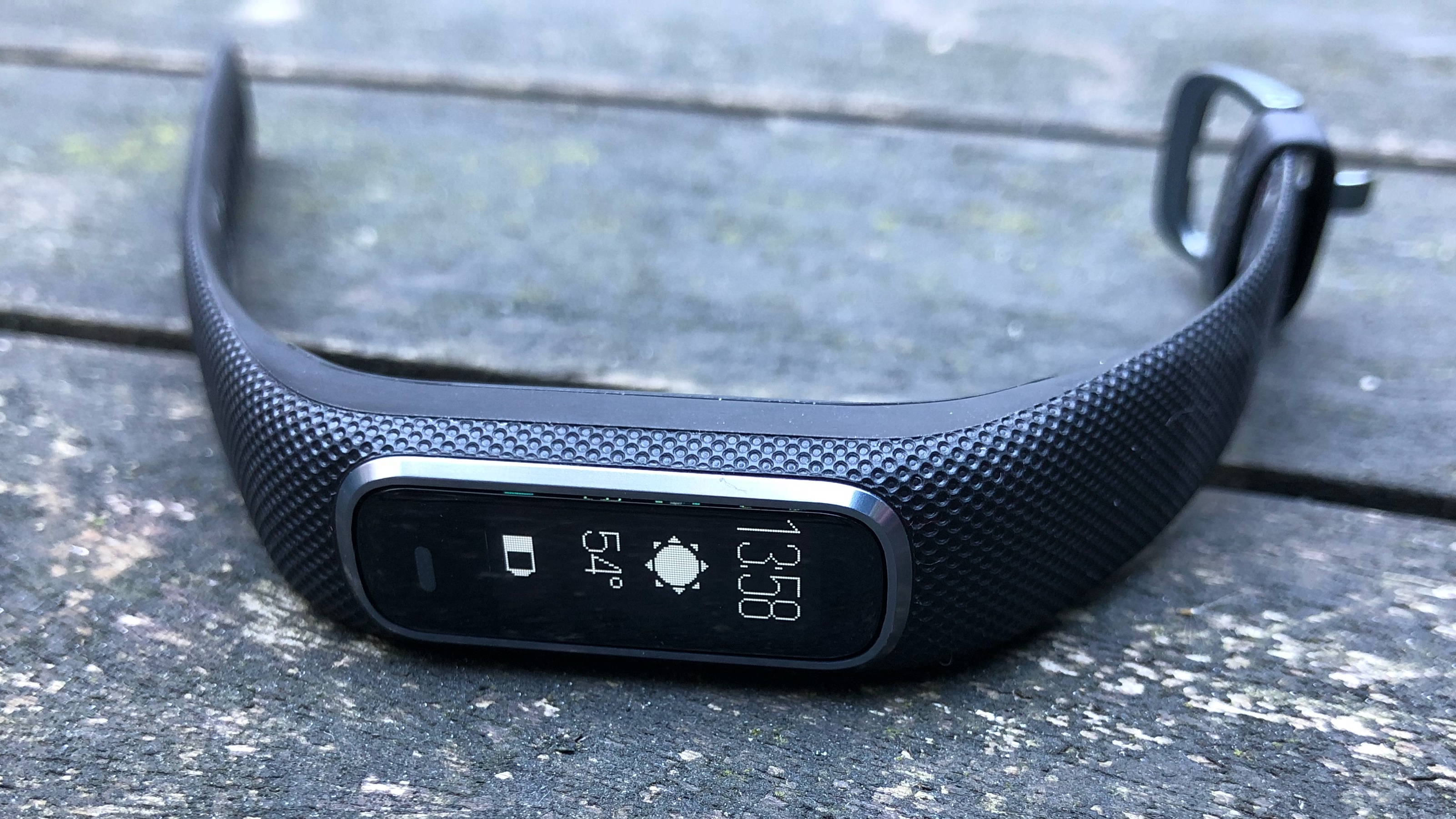TechRadar Verdict
Garmin proves it doesn’t just cater for serious athletes with the Vivosmart 4, an everyday wear tracker that can monitor heart rate, blood oxygen levels and energy throughout the day at a relatively affordable price.
Pros
- +
Slim design
- +
Long-lasting battery
- +
Body Battery metric
Cons
- -
Small screen
- -
Screen unresponsive at times
- -
No GPS
Why you can trust TechRadar
Garmin is best known for its high-end running watches, as well as more niche devices like swimming watches and golf watches. The brand’s wearables do a great job at tracking fitness, as well as analyzing that data so wannabe athletes know when they should be resting or pushing harder.
But you don’t need to be training for a marathon or raking in an eye-watering salary to get your hands on some Garmin smarts. Its Vivosport, Vivofit and Vivosmart ranges provide a more affordable selection of trackers that still focus on fitness, but give users an everyday option instead.
The latest entry in the Vivosmart line is the Garmin Vivosmart 4. It’s a slimline wearable that’s swim-friendly and comes loaded with fitness and well-being features that are designed to help you become more active, healthier and less prone to stress and burnout.
It does this through its range of sensors and features, including a pulse ox sensor that estimates blood oxygen saturation, an optical heart rate sensor, stress tracking, and guided breathing, plus Body Battery energy monitoring, which helps you figure out when you’re primed to be active or when you may need to rest.
We tested it to see whether it really delivers on its bold promises to keep us all active, rested and stress-free.

Garmin Vivosmart 4 price and release date
- Launched in September 2018
- The Garmin Vivosmart 4 costs $129.99 (£119.99, AU$199)
The Vivosmart 4 was launched at IFA 2018 at the beginning of September 2018. It then hit most markets towards the back-end of the month.
At $129.99 (£119.99, AU$199) it’s one of Garmin’s cheaper activity trackers and the latest addition to the Vivosmart line.
Sign up for breaking news, reviews, opinion, top tech deals, and more.
The only more affordable option from Garmin right now is the Vivofit 4, which we rated highly in our review for its incredible battery life and color screen. But that was much more basic that the Vivosmart 4, lacking both the optical heart rate tracking and Pulse Ox sensor that the new device offers.
The wearables currently on the market that the Vivosmart 4 will likely be up against include the Fitbit Alta, which has a similarly slim form factor, but the Vivosmart 4 shares more features with the Fitbit Charge 3 and at £129.99 / $149.95 / AU$229.95 that’s a very similar price point too.
All in all the Garmin Vivosmart 4 may not be a budget tracker, but considering it covers all the features you’d need, it’s packed with some newer sensors and it has the Garmin seal of approval, this is reasonably priced and worth the money.

Design
- Super slim design
- Comfortable silicone strap
- Screen is sometimes too small
Activity trackers are no longer chunky and just built for the gym. The Vivosmart 4 is a slim fitness tracker that would suit most people for 24/7 wear, especially if you opt for one of the more subtle colors.
It has an aluminum bezel around the screen and metal accents, which come in a range of colors. There’s berry with a gold bezel, powder grey with a rose gold bezel, azure blue with a silver bezel and black with a slate bezel.

It’s worth mentioning that the silicone strap is built in to the device, which means you do need to spend some time working out which color you really want because you won’t get to switch it out later.
Unlike a lot of similar-sized trackers, there’s a traditional watch buckle to keep the silicone strap in place rather than a push-in stud and this is very good news. The push-in fastenings aren’t always reliable, especially during a workout.
It also seemingly makes the strap more comfortable. Silicone straps sometimes irritate our wrists, but this one didn’t cause any problems, even when worn all day, all night and for the best part of a week before taking it off to charge.
The Vivosmart 4 comes in two sizes, there’s small/medium, which is 16.5g and designed to fit wrists with a circumference of 122-188mm. The large option is 17.1g and is for those with a wrist circumference of 148-215mm.

The 6.6mm x 17.7mm OLED display has a 48 x 128 pixel resolution and it’s bright, with an auto-adjust feature that dims down to ambient light levels, meaning you can read it in all kinds of lighting environments.
One of the biggest downsides of the Vivosmart 4 is the fact the screen is so small. Sure this is necessary for the device to take on a slim form factor, so we can’t complain too much. But it does take a while to adjust to seeing text half cut off, icons in menus rather than words, and make sense of how to navigate through the interface.
The Vivosmart 4 has 5ATM waterproofing, which means you can wear it in the shower and take it for a swim. We found it worked well at the pool, but the smaller screen felt even more difficult to see and interact with when wet.
On the rear of the device there’s an optical heart rate sensor, which sits flush against the skin and doesn’t leak too much light out during the night when it’s tracking your resting heart rate (RHR) as you sleep.
- Find the best deals on Garmin products with our Garmin promo codes.

Becca is a contributor to TechRadar, a freelance journalist and author. She’s been writing about consumer tech and popular science for more than ten years, covering all kinds of topics, including why robots have eyes and whether we’ll experience the overview effect one day. She’s particularly interested in VR/AR, wearables, digital health, space tech and chatting to experts and academics about the future. She’s contributed to TechRadar, T3, Wired, New Scientist, The Guardian, Inverse and many more. Her first book, Screen Time, came out in January 2021 with Bonnier Books. She loves science-fiction, brutalist architecture, and spending too much time floating through space in virtual reality.
